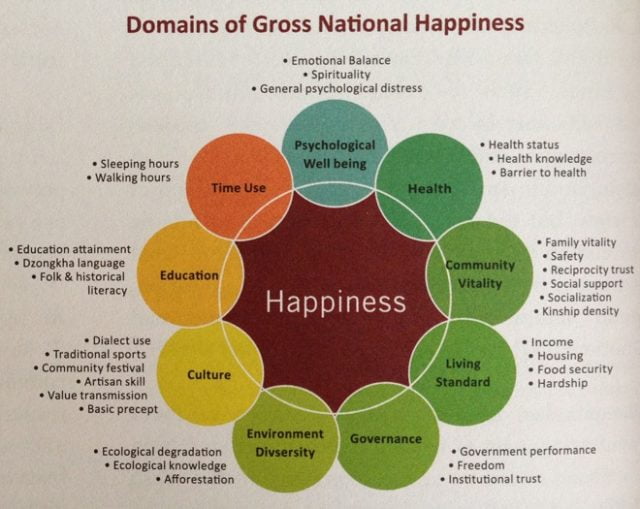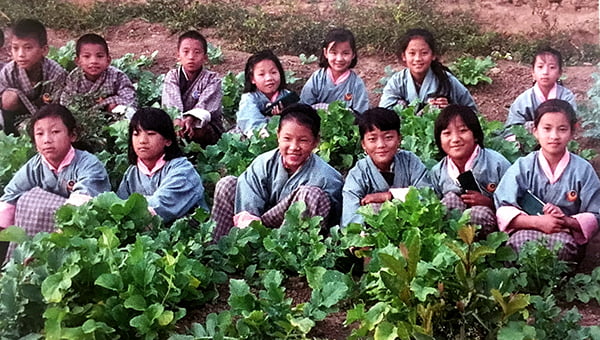The other day my professor was talking about some of her high-income relatives, working hard from 9-5, and several times even beyond. But the long strenuous work hours are justifiable, as they earn a handsome salary.
But how worthy is this hard-earned money if it comes at the expense of the health, happiness and all of the energy of the employees?
The advent of industrialization has led us into collectively believing that it is the money alone that counts and contributes to the economy of the country. The health and well-being of the people fall secondary to that.
I wonder if the way in which we assess our development is falling short on an important element entirely.
Our Neighbour Bhutan Measures Development This Way
Sandwiched between India and China, Bhutan is a sovereign nation-state and is one of the very few countries to have not been colonialized. The country is predominantly Buddhist and is governed via constitutional monarchy.
And that’s where most of its similarities with many ‘everyday’ countries come to an end. Because instead of using Gross Domestic Product (GDP) to measure their economic development, Bhutan uses Gross National Happiness (GNH) to rate their development.

In 1971, the country rejected GDP as their index to assess the development of their nation, and took to using GNH instead, which would measure the development with respect to the spiritual, social, mental and environmental health of its citizens.
The idea behind this is that, the well-being and contentment of each and every citizen are more important than the mere monetary gains of the nation as a whole.
Also Read: By Doing Prisoner Swaps With Taliban, US/Indian Govts Are Making Civilians A Target For Kidnapping Abroad
The GNH is measured every five years, aided by the Centre for Bhutan Studies and GNH Research. The unique index consists of the nine given domains:
- Psychological well-being
- Health
- Education
- Time use
- Cultural diversity and resilience
- Good governance
- Community vitality
- Ecological diversity and resilience
- Living standards

Reverence for Nature
Bhutan aims at keeping about 60% of its land under forest cover. As a result, people birth and grow with the environment, learning from nature and also contributing to its conservation.
Besides, every year, they have a “Pedestrians Day”, where people are urged to not use automobiles and travel to their respective destinations on foot.
Children are taught sustainable agricultural practices along with academics. Plus, academics are not limited to daily subjects like science and math, but also aim towards holistic development of children and include practices like meditation and praying.

Our Takeaway
In a world turning insanely dystopic and mechanical, owing largely to the cons of advancing technology and emphasis on money-making, this small country sets an example worth noting.
Not to say that everyone should adopt the developmental index that they follow, but at least, we can learn to slow down our pace and urgency at work and focus more on our mental well-being.
In regards to India, it is saddening to know that the ‘World Happiness Report 2019’ ranks India at 140, which is way behind China and even Pakistan. Perhaps, we as Indians need to take a chill-pill and de-stress our minds and try putting our happiness and health before jobs!
Image Sources: Google Images
Sources: OPHI, GNH Centre Bhutan, The Guardian
Connect With Blogger @Rhetorician_rc






























